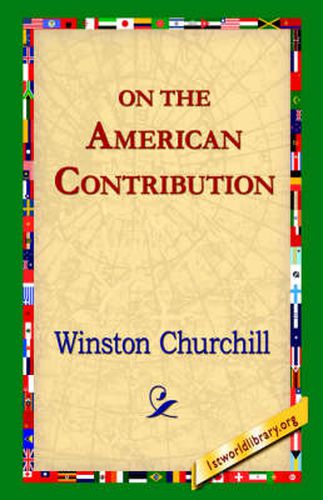Readings Newsletter
Become a Readings Member to make your shopping experience even easier.
Sign in or sign up for free!
You’re not far away from qualifying for FREE standard shipping within Australia
You’ve qualified for FREE standard shipping within Australia
The cart is loading…






This title is printed to order. This book may have been self-published. If so, we cannot guarantee the quality of the content. In the main most books will have gone through the editing process however some may not. We therefore suggest that you be aware of this before ordering this book. If in doubt check either the author or publisher’s details as we are unable to accept any returns unless they are faulty. Please contact us if you have any questions.
Failure to recognize that the American, is at heart an idealist is to lack understanding of our national character. Two of our greatest interpreters proclaimed it, Emerson and William James. In a recent address at the Paris Sorbonne on American Idealism, M. Firmin Roz observed that a people is rarely justly estimated by its contemporaries. The French, he says, have been celebrated chiefly for the skill of their chefs and their vaudeville actors, while in the disturbed ‘speculum mundi’ Americans have appeared as a collection of money grabbers whose philosophy is the dollar. It remained for the war to reveal the true nature of both peoples. The American colonists, M. Roz continues, unlike other colonists, were animated not by material motives, but by the desire to safeguard and realize an ideal; our inherent characteristic today is a belief in the virtue and power of ideas, of a national, indeed, of a universal, mission. In the Eighteenth Century we proposed a Philosophy and adopted a Constitution far in advance of the political practice of the day, and set up a government of which Europe predicted the early downfall. Nevertheless, thanks partly to good fortune, and to the farseeing wisdom of our early statesmen who perceived that the success of our experiment depended upon the maintenance of an isolation from European affairs, we established democracy as a practical form of government.
$9.00 standard shipping within Australia
FREE standard shipping within Australia for orders over $100.00
Express & International shipping calculated at checkout
This title is printed to order. This book may have been self-published. If so, we cannot guarantee the quality of the content. In the main most books will have gone through the editing process however some may not. We therefore suggest that you be aware of this before ordering this book. If in doubt check either the author or publisher’s details as we are unable to accept any returns unless they are faulty. Please contact us if you have any questions.
Failure to recognize that the American, is at heart an idealist is to lack understanding of our national character. Two of our greatest interpreters proclaimed it, Emerson and William James. In a recent address at the Paris Sorbonne on American Idealism, M. Firmin Roz observed that a people is rarely justly estimated by its contemporaries. The French, he says, have been celebrated chiefly for the skill of their chefs and their vaudeville actors, while in the disturbed ‘speculum mundi’ Americans have appeared as a collection of money grabbers whose philosophy is the dollar. It remained for the war to reveal the true nature of both peoples. The American colonists, M. Roz continues, unlike other colonists, were animated not by material motives, but by the desire to safeguard and realize an ideal; our inherent characteristic today is a belief in the virtue and power of ideas, of a national, indeed, of a universal, mission. In the Eighteenth Century we proposed a Philosophy and adopted a Constitution far in advance of the political practice of the day, and set up a government of which Europe predicted the early downfall. Nevertheless, thanks partly to good fortune, and to the farseeing wisdom of our early statesmen who perceived that the success of our experiment depended upon the maintenance of an isolation from European affairs, we established democracy as a practical form of government.